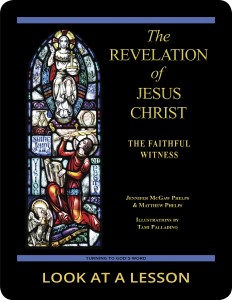apostasy & heresy
 Two related but different concepts that come up when we talk about our faith are apostasy and heresy. In recent years, we tend to hear much
Two related but different concepts that come up when we talk about our faith are apostasy and heresy. In recent years, we tend to hear much
more about heresy in Catholic circles, but it may be more appropriate for us to be talking about apostasy. Let’s look at the roots of these two concepts.
Apostasy comes from the ancient Greek verb ἀφίστημι (aphistemi), meaning “I stand,” and a preposition meaning “from.” As a noun, it appears as ἀπόστασις (apostasis). Combined, the separate parts literally mean something like “I stand apart from” and refer more abstractly to revolt or departure. In the context of the faith, apostasy is a renunciation or an abandoning of the principals of the faith.
The word heresy comes from the Greek αἱρέω (haireo), a verb meaning “I take.” Ancient Greek has not only an active and a passive voice but also a middle voice that suggests something like doing the action for and/or to oneself. Heresy comes from an abstraction of the middle voice of this verb in which taking for oneself comes to mean something like “making a choice.” So being a heretic highlights choosing some aspects of belief for oneself rather than accepting the teaching authority put in place by Jesus.
Which of these two concepts do you think is most prevalent in our society today? Which is worse?
you also may like our study of the book of Revelation
 The Revelation of Jesus Christ: The Faithful Witness, a 23-lesson Catholic Bible study with an imprimatur, examines ways in which our traditional Christian view of heaven is built on Hebrew apocalyptic visions recorded in the Old Testament. This recently revised study includes maps and additional commentary and takes a close look at the role of the prophets in present-day Christianity. Illustrations by Tami Palladino depict the often-misunderstood images in the book of Revelation. Click on the book’s cover to view a sample lesson.
The Revelation of Jesus Christ: The Faithful Witness, a 23-lesson Catholic Bible study with an imprimatur, examines ways in which our traditional Christian view of heaven is built on Hebrew apocalyptic visions recorded in the Old Testament. This recently revised study includes maps and additional commentary and takes a close look at the role of the prophets in present-day Christianity. Illustrations by Tami Palladino depict the often-misunderstood images in the book of Revelation. Click on the book’s cover to view a sample lesson.
 Click on the picture of the statue of Moses with horns (above) to learn more about Lost in Translation. A new entry is archived each Monday. Contact us to receive Lost in Translation by email every week. You may use any of the contact links on our website to ask Matthew a question.
Click on the picture of the statue of Moses with horns (above) to learn more about Lost in Translation. A new entry is archived each Monday. Contact us to receive Lost in Translation by email every week. You may use any of the contact links on our website to ask Matthew a question.
